economies of scale – the cost advantage of producing on a large scale
(Pronounced ih-con-uh-mees of scayl)
To remember what economies of scale means use the following mnemonic:
Economically we would be a lot better off if we could make these scales (economies of scale) in large volumes.
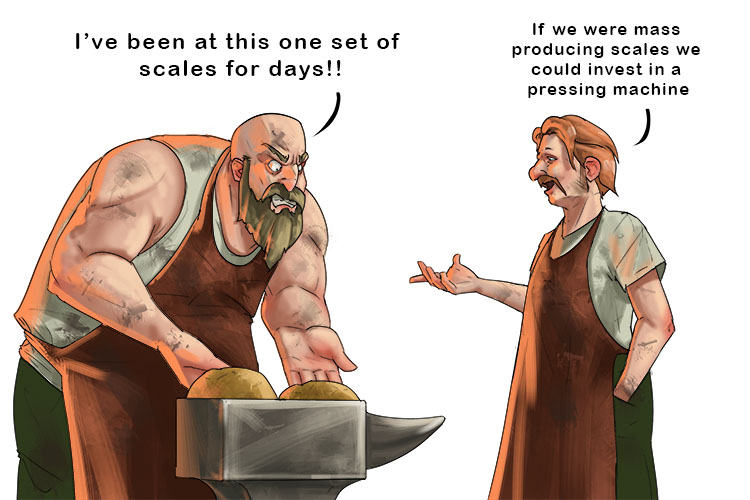
Using this mnemonic we can use its extreme example to show the economies of scale that can occur making sets of weighing scales:
Imagine the effort of taking one order and making a one-off set of scales.
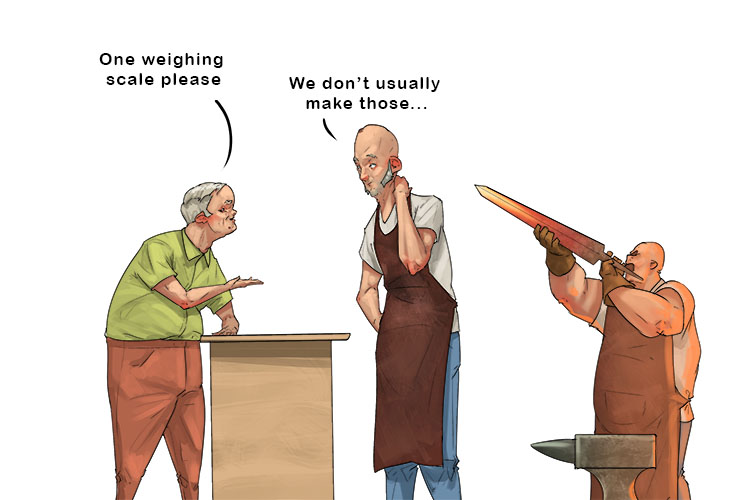
The blacksmith and his apprentice would have to find all the metals, design and make every component, and use only the tools and machines available in their workshop. The time to make this single set of weighing scales would be very extensive and so the costs would be very high.
Now say you were making fifty weighing machines per week and you dedicated your workshop to this.
You could have a pressing machine permanently set up to make the dishes.
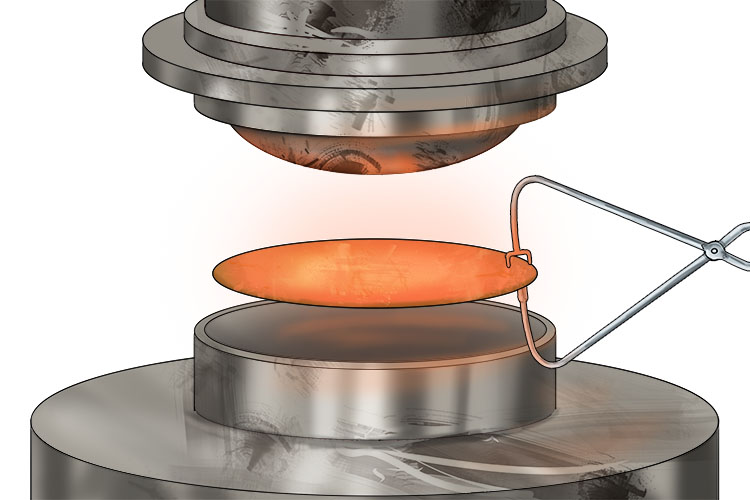
You could buy in volume loads of chain at a much cheaper rate per metre.
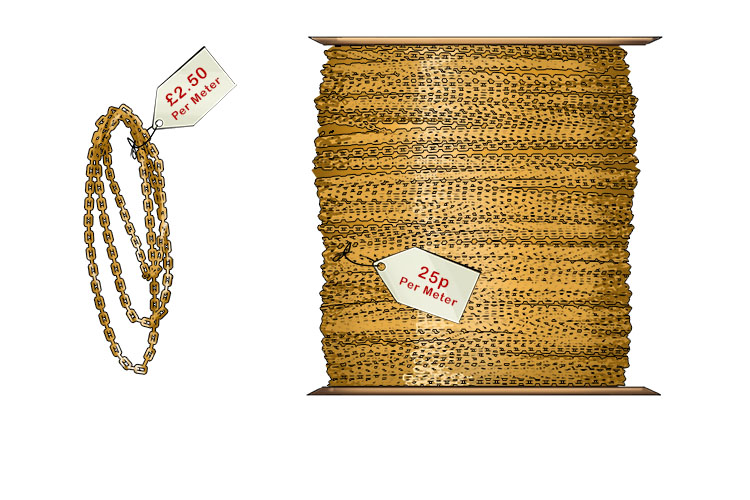
You could buy a welding machine to add parts to the scales.

You could even buy a buffing machine that could easily clean the brassware.
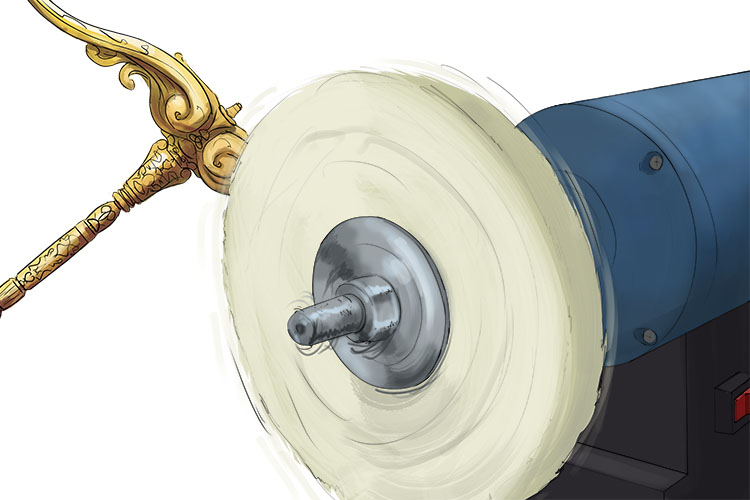
Even with this simple example, you can see that:
- Purchasing economies of scale – You can buy each component in volume at a much cheaper price
- Technical economies of scale – Machines purchased specifically for each part of the job will remove set-up times. The saving in labour costs are extensive but you have to know what machines to buy.
- Managerial economies of scale – With more volume, asking for a managerial consultant won’t cost you very much per set of scales but could be an excellent investment to make even further savings.
- Marketing economies of scale – Because the production price per set of scales is cheaper than the competition, you could market them at a lower price than your rivals. Using this low price as a unique selling point in advertising will lead to more customers and sales.
- Financial Economies of scale – Profitable companies with larger volumes can find better deals on interest charges for loans on a new larger premises. A small low volume company is more of a risk to a bank and therefore will not get such favourable loan terms.
Financial Economies of Scale
Profitable companies with larger volumes can find better deals on interest charges for loans on a new premises. A small low volume company is more of a risk to a bank and therefore will not get such favourable loan terms.




